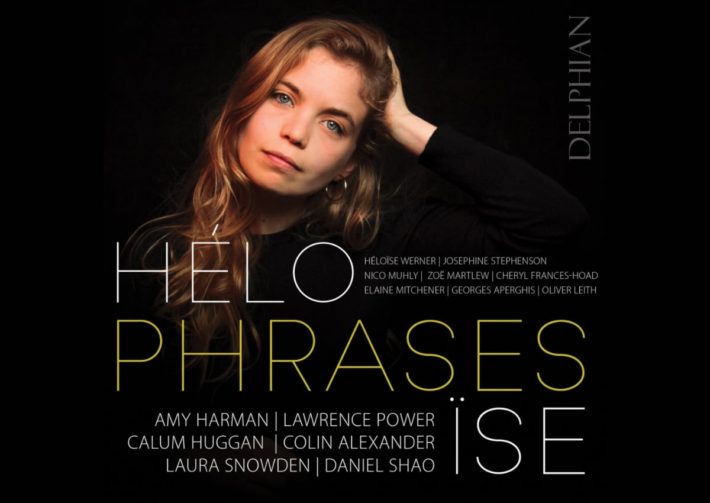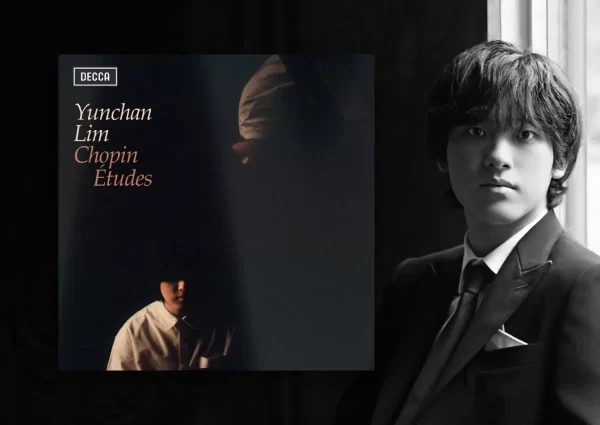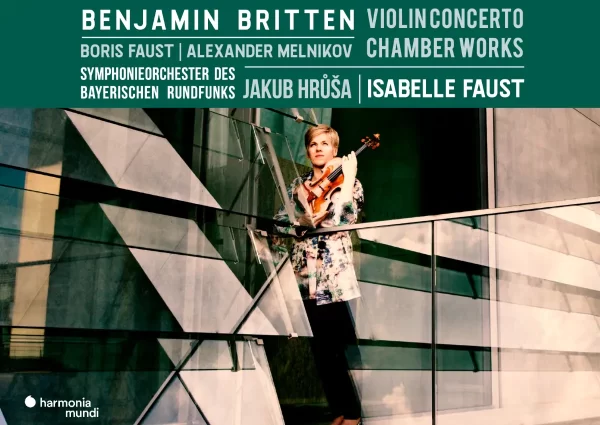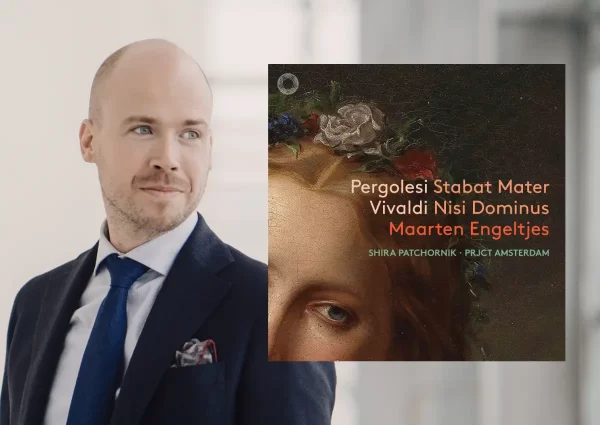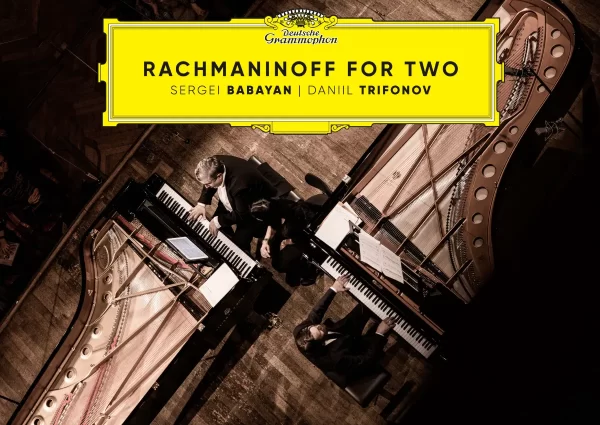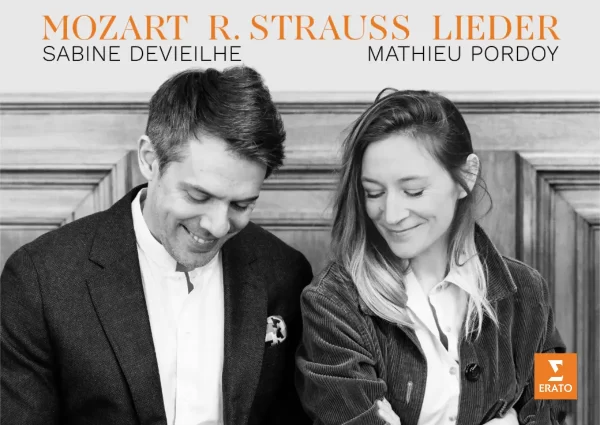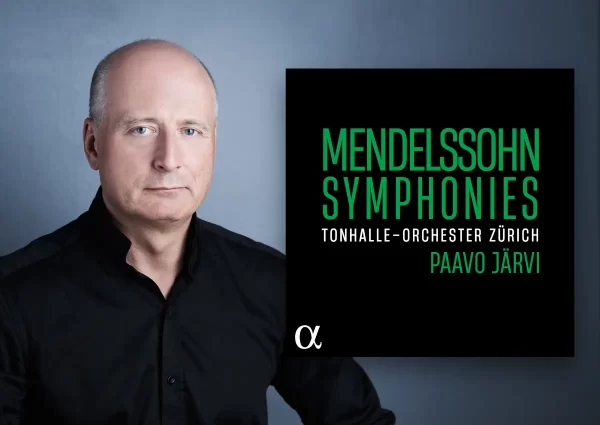Soprano and composer Héloise Werner’s new release is an offering of contemporary works centered around the theme of ‘phrases’. She lends her compositional voice to more than a third of the tracks, which sets us up for a personal and unique perspective.
One of Werner’s original compositions, Like Words, opens the album. It features an interesting tripartite relationship: there’s a pure, tonal simplicity in the unison textures which have the feel of a Gregorian chant; consonant harmonies where the voice leaves the unison; and subtle yet intriguing moments of dissonance in the small vocal slides. Given the sparseness of the texture, the instrumental line plays an important role here. Bassoonist Amy Harman does a lovely job creating a full-bodied tone to complement Werner. As for the soprano, she creates multiple colors and characters as the lines peak and wane.
Josephine Stephenson’s Comme l’espoir (track 2) mixes French and English text in a rather esoteric manner, but the music does the explaining with a perceptible musing. The guitar’s ostinato shifts tonally but nonetheless provides a rhythmic and harmonic anchor which allows Werner to take on the role of the contemplative narrator. What I liked in her performance was an observance of rhythmic synchronicity with the accompaniment but also fluidity in the smaller melismatic passages and flair in the climatic moments.
Georges Aperghis’ Récitations (1978) diverges considerably from the aforementioned selections. There is no accompaniment, and, as we hear in #3 (track 6), no melody and no truly identifiable text. Yet, Werner’s precise performance reveals its aim as a phonological revelation: to show the construction of spoken sounds which one might normally take for granted. There is a mix of drawn-out elisions, emphasized phonemes, and–perhaps most interestingly–quite a variety of deliberately delivered consonants that is eye-opening. A more virtuosic one is #11 (track 10). Listeners might find the chattering textures eccentric, but Werner’s performance does them justice. Evident is the need for a wide range of spoken timbres and diction techniques, which she delivers smoothly and impressively given the lightning fast changes between them.
Related Posts
- Review: Barbara Hannigan – “La Passione”
- Review: “Clair-Obscur” – Sandrine Piau Sings Strauss, Berg and Zemlinsky
- Review: Messiaen – Vingt Regards sur l’Enfant-Jésus – Bertrand Chamayou, Piano
Nico Muhly’s Benedicte Recitation (track 5) is closer in feel to some of the other duo works like Comme l’espoir with the presence of an instrumental ostinato and a lyrical vocal line. The liner notes, however, describe the connection between this Recitation and the ones by Aperghis: they share a common theme of ‘cellular growth.’ Indeed, Muhly’s flute part has a repetitive minimalism à la Philip Glass which, when it intertwines with the singer, creates an ever-evolving harmonic soundscape. At around 3’54”, we hear how the voice embraces the minimalist pattern (with some very accurate pitch placement from Werner) before a shift into a more expansive texture that’s punctuated with chimes from the crotale.
The soprano’s own Mixed Phrases rounds out the tracks, and for me, is a fitting culmination in terms of the textures and techniques presented: the whispery opening feels like a nod to Aperghis’ Récitation #3, while 7’24” has similar acrobatics of diction to #11. We can hear the vestiges of minimalism in the violin at 1’29”, and the insistent appearance of the last syllable of the word “continuellement” in the text perhaps mirrors the singular presence of the “yh” in Oliver Leith’s piece (track 12). Despite being one of the most abstract offerings on the album, it speaks successfully to Werner’s versatility and her thoughtful consideration of the individual significance and interlinkage of the prior works.
The sound engineers do a solid job in creating an intimate listening space , which is particularly important given the variety of instrumentation used throughout the recording; I found the overall balance nice in how it gave equal weight to all parts. Colin Alexander’s “Notes on the Music ” prove an extremely useful guide with their musical and conceptual descriptions. The accompanying texts and translations are also an appreciated inclusion.
All the performers do a wonderful job of breathing life into a program that is eclectic, at times unconventional, but ultimately thought-provoking and refreshing. Strongly recommended.

Phrases
Héloïse Werner – Soprano
Colin Alexander – Cello
Amy Harman – Bassoon
Calum Huggan – Percussion
Lawrence Power – Violin & Viola
Daniel Shao – Flute
Laura Snowden – Guitar
Delphian, CD DCD34269
Related Albums
Read more classical music reviews or visit The Classic Review Amazon store
Follow Us and Comment:
Get our periodic classical music newsletter with our recent reviews, news and beginners guides.
We respect your privacy.

